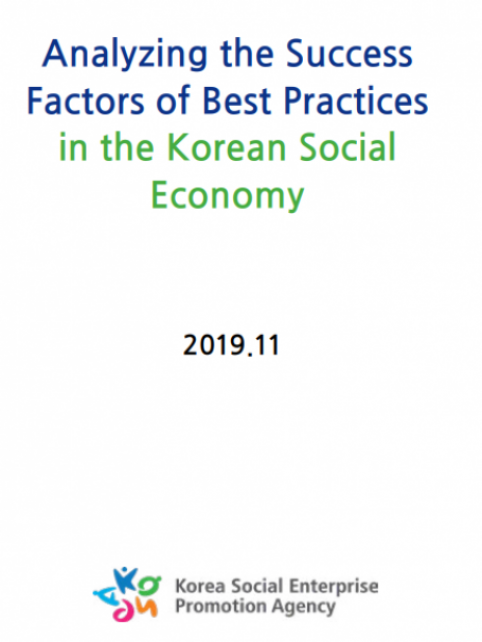Analyzing the Success Factors of Best Practices in the Korean Social Economy

This report is an analysis of the factors that led to such achievements with the lens of Sustainable Development Goals (SDGs) by selecting 10 excellent examples of social economy enterprises that have recently grown in Korea.
Based on mutuality, iCoop (SDGs 2,4,8,10,12) and Happy Bridge (SDGs 4,5,8,10) have a mission to promote economic exchange of consideration for humans, environment and community, and to create and maintain quality jobs, while Ansung (SDGs 3,4), Donuri (SDGs 3,4,5,8), Dasomi (SDGs 8), and Jump (SDGs 4) have a mission to pursue the happiness of both beneficiaries and providers of social services as a social enterprise. Beautiful Store (SDGs 10,12), Tree Planet (SDGs 13) and ACompany (SDGs 8) are operated to realize civil participation-type public interests in the environment, culture and arts sectors where their value is excluded or there are not many opportunities in the capitalist market, and Test Works (SDGs 8) is a work integration social enterprise that seeks to create jobs that can turn the weakness of the disabled into advantages.
These ten examples summarize the following four strategic and policy implications.
First, it was confirmed that a business model that reflects the needs of its members and the characteristics of the cooperative ownership are essential for a cooperative to succeed while a social business model that is balanced in terms of social and economic value is necessary for a social enterprise of non-co-operative type to generate social impact. Second, it was also confirmed that in order for social economy enterprises to strengthen and maintain their social impact, it would be better to establish a cooperation among enterprises, such as business federations, networks and social franchises, rather than self-expansion of enterprises. Third, another strategy to strengthen social impact is public-social-private partnerships. Examples of Dounuri, Jump, Tree Planet, Beautiful Store, and Dasomi show this strategy. Fourth, the fact that establishment of infra structure capable of systematic external resource linkage in the early stages of social economy enterprise growth plays a very big role in success shall be highlighted, as a suggestion to the support system on the creation and growth of social economy enterprises.
Paper authors: Jongick Jang (Professor, Global Business Department, Hanshin University); Changho Oh (Professor, Department of Business Administration, Hanshin University); Hyun S. Shin (Professor, Division of Business Administration, Hanyang University); Jungsoo Park (Graduate School for Social Innovation Business, Hanshin University); Suyeon Lee (Graduate School for Social Innovation Business, Hanshin University); Gyejin Choi (Graduate School for Social Innovation Business, Hanshin University); Jeonghoon Kang (Graduate School of Business Administration, Hanyang University)